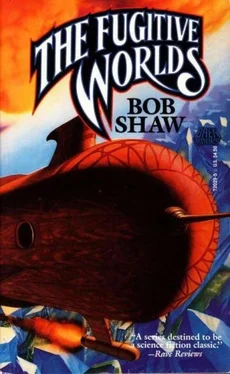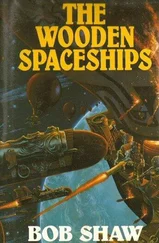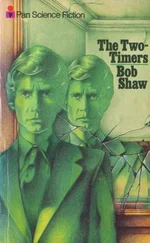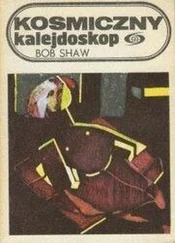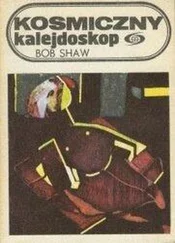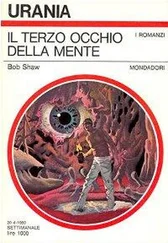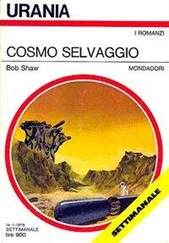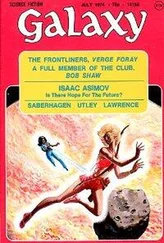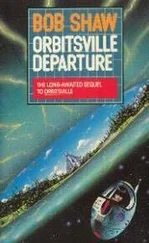Bob Shaw - The Fugitive Worlds
Здесь есть возможность читать онлайн «Bob Shaw - The Fugitive Worlds» весь текст электронной книги совершенно бесплатно (целиком полную версию без сокращений). В некоторых случаях можно слушать аудио, скачать через торрент в формате fb2 и присутствует краткое содержание. Год выпуска: 1990, ISBN: 1990, Издательство: Baen Books, Жанр: Фантастика и фэнтези, на английском языке. Описание произведения, (предисловие) а так же отзывы посетителей доступны на портале библиотеки ЛибКат.
- Название:The Fugitive Worlds
- Автор:
- Издательство:Baen Books
- Жанр:
- Год:1990
- ISBN:0-671-72029-5
- Рейтинг книги:3 / 5. Голосов: 1
-
Избранное:Добавить в избранное
- Отзывы:
-
Ваша оценка:
- 60
- 1
- 2
- 3
- 4
- 5
The Fugitive Worlds: краткое содержание, описание и аннотация
Предлагаем к чтению аннотацию, описание, краткое содержание или предисловие (зависит от того, что написал сам автор книги «The Fugitive Worlds»). Если вы не нашли необходимую информацию о книге — напишите в комментариях, мы постараемся отыскать её.
The Fugitive Worlds — читать онлайн бесплатно полную книгу (весь текст) целиком
Ниже представлен текст книги, разбитый по страницам. Система сохранения места последней прочитанной страницы, позволяет с удобством читать онлайн бесплатно книгу «The Fugitive Worlds», без необходимости каждый раз заново искать на чём Вы остановились. Поставьте закладку, и сможете в любой момент перейти на страницу, на которой закончили чтение.
Интервал:
Закладка:
“Is that so?” Sholdde turned a hard-eyed, critical gaze on Correvalte and the look of gratification which had appeared on the lieutenant’s face quickly faded.
“Sir,” Toller said, “is Commissioner Kettoran very ill?”
“He looks to me like he’s already dead,” Sholdde said indifferently. “Why did he particularly ask for you to fly him home?”
“I don’t know, sir.”
“I can’t understand it either. It seems a strange choice to me. You haven’t exactly distinguished yourself on this mission, Maraquine. I kept waiting for you to trip over that antiquated piece of iron you insist on wearing.”
Toller unconsciously touched the haft of his sword and he felt his face grow warm. The commodore was subjecting him to unnecessary ignominy by giving him a dressing down in the presence of lesser ranks. The most Toller could do to register a protest was to hint that he viewed Sholdde’s remarks as a waste of valuable time.
“Sir, if the commissioner looks as poorly as you say…”
“All right, all right, begone with you.” Sholdde glanced briefly at Steenameert. “Has this man become a Maraquine family retainer, part of your personal entourage?”
“Sir, Corporal Steenameert is a first-class skyman and his services would be invaluable to me on—”
“Take him!” Sholdde turned and strode away without any kind of salute, an action which could only be interpreted as another direct insult.
So that’s it, Toller thought, alerted by the commodore’s reference to the “Maraquine family”. My grandfather was the most famed warrior in Kolcorronian history; my father is one of the most brilliant and most powerful men alive — and even the likes of Sholdde resent me for it. Is that because they believe I secretly make use of family influence? Or is it because, by overtly not making use of it, I proclaim a special kind of egotism? Or can it be that I shame or annoy them by refusing to grasp opportunities for which they would give… ?
A prolonged blast on the skyship’s burner, echoing in the huge cavity of the balloon, interrupted Toller’s reverie. He touched Correvalte’s shoulder in farewell, ran with Steenameert to the gondola and climbed over the side. The ground crew sergeant who was at the burner controls, keeping the ship in readiness, saluted and nodded towards the passenger compartment.
Toller went to the chest-high cane partition and looked over it. Commissioner Kettoran was lying on a pallet and, in spite of the heat, was covered with a quilt. His long face was extremely pale, with lines of age and weariness graven into it, but his eyes were alert. He winked when he saw Toller and twitched a thin hand in an attempted greeting.
“Are you travelling alone, sir?” Toller said with concern. “No physician?”
A scornful expression briefly animated Kettoran’s features. “Those blood-letters will never get their hands on me.”
“But if you are ill…”
“The doctor who could cure my complaint has yet to be born,” Kettoran said, almost with satisfaction. “I suffer from nothing less than a dearth of time. Speaking of which, young Maraquine, I was under the impression you also were anxious to make a speedy return to Overland.”
Toller mumbled an apology and turned to the sergeant, who immediately moved away from the burner controls and clambered over the gondola’s side. Pausing for a few seconds on the outside ledge, he explained to Steenameert where all necessary provisions, including skysuits, had been stored. As soon as he had dropped out of sight Toller fed a plentiful charge of hot gas into the pliable dome of the balloon above him and pulled the anchor link.
The skyship surged upwards, its acceleration enhanced by the lift created as the curved upper surface of the balloon moved into the current of air flowing over the enclosure. Well aware that the extra buoyancy would be cancelled as soon as the balloon fully entered the westerly airstream and began to move with it, Toller kept the burner going. The skyship—in spite of being so much below its maximum operating weight—performed a queasy slow-motion shimmy as it adapted to the changing aerial environment, causing Steenameert to clutch theatrically at his stomach. From Commissioner Kettoran, hidden behind his wicker partition, came a moan of complaint.
For the second time in less than an hour the sprawling panorama of Ro-Atabri began to recede from Toller, but now it was retreating downwards. I can scarcely believe that all this is happening to me, he thought dreamily, almost stupefied by the flux of circumstance. Only minutes earlier he had been racked by fears that he would never see Vantara Dervonai again—now he was on his way to her, keeping an appointment which had been specially arranged for him by the forces of destiny.
Soon I will be able to see Vantara again, he told himself. For once, things are working out in my favor.
Toller had not eaten anything for a day, and had taken only a few sips of water, barely enough to replace the bodily moisture lost by exhaling into the arid air of the middle passage. Toilet facilities on a skyship were necessarily primitive and unpleasant to use at the best of times, but in weightless conditions the disadvantages—including the sheer indignity—were so great that most people chose to suspend their natural functions as completely as possible for a day on either side of turnover. The system worked reasonably well for a healthy adult, but Commissioner Kettoran had begun the voyage in a severely weakened state, and now—much to Toller’s concern—appeared to be using up the last dregs of his strength merely to stay alive.
“You can take those slops away from me,” Kettoran said in a grouchy whisper. “I refuse to be suckled like a babe at my time of life—especially from a revolting dug like that.”
Toller unhappily fingered the conical bag of luke-warm soup he had been proffering. “This will do you good.”
“You sound just like my mother.”
“Is that a reason for not taking sustenance?”
“Don’t try to be clever, young Maraquine.” Kettoran’s breath issued in white clouds from a small opening in the mound of quilts in which he had ensconced himself.
“I was only trying to—”
“My mother could make much better food than any of the cooks we ever employed,” Kettoran mused, paying no heed to Toller. “We had a house on the west side of Greenmount—not far from where your grandfather lived, incidentally—and I can still remember riding up the hill, going into our precinct and knowing immediately, just by the aromas, whether or not my mother had chosen to prepare the evening meal. I went back there a few days after we landed in Ro-Atabri, but the entire district had been burnt out a long time ago… during the riots… gutted… hardly a building left intact. It was a mistake for me to go there—I should have preserved my memories.”
At the mention of his namesake Toller’s interest picked up. “Did you ever see my grandfather in those days?”
“Occasionally. It would have been hard not to see him—a fine figure of a man, he was—but I more often saw his brother, Lain… going back and forth between his house and the Lord Philosopher’s official residence in Greenmount Peel.”
“What did my grand—?” Toller broke off, alarms clamoring silently in his mind, as there was a subtle but abrupt change in his environment. He rose to his feet, holding a transverse line to keep himself from drifting clear of the deck, and looked all about him. Steenameert, muffled in his skysuit, was strapped into his seat at the control station. He was firing the main jet in the steady rhythm needed to maintain the ship’s ascent, and he appeared completely unperturbed. Everything seemed absolutely as normal in the square microcosm of the gondola, and beyond its rim the familiar patterns of stars and luminous whirls shone steadily in the dark blue sky.
Читать дальшеИнтервал:
Закладка:
Похожие книги на «The Fugitive Worlds»
Представляем Вашему вниманию похожие книги на «The Fugitive Worlds» списком для выбора. Мы отобрали схожую по названию и смыслу литературу в надежде предоставить читателям больше вариантов отыскать новые, интересные, ещё непрочитанные произведения.
Обсуждение, отзывы о книге «The Fugitive Worlds» и просто собственные мнения читателей. Оставьте ваши комментарии, напишите, что Вы думаете о произведении, его смысле или главных героях. Укажите что конкретно понравилось, а что нет, и почему Вы так считаете.
